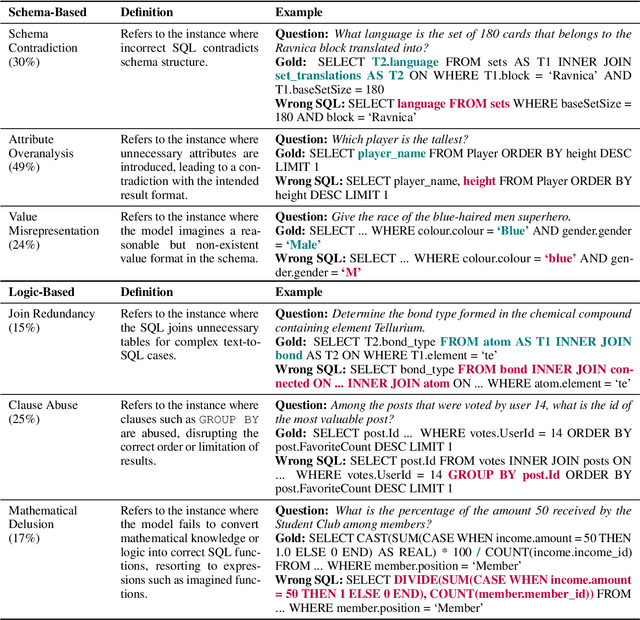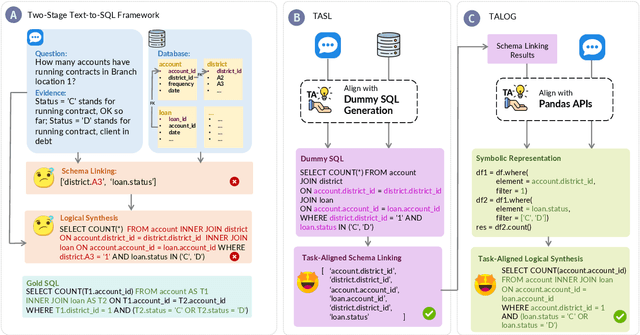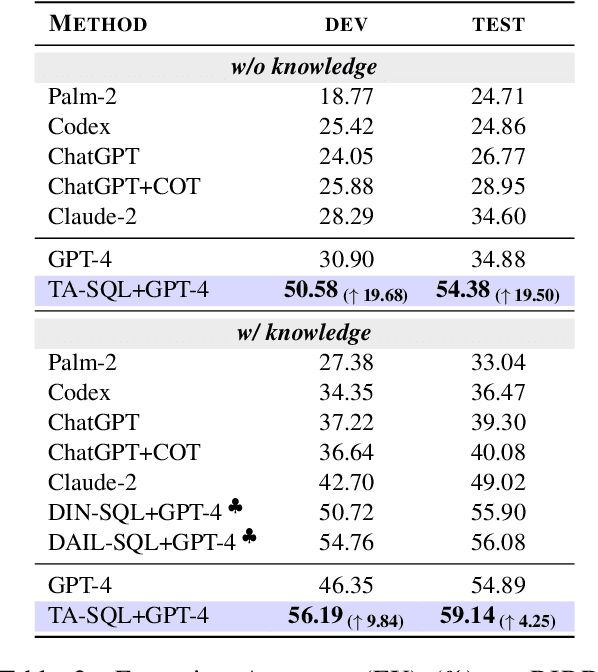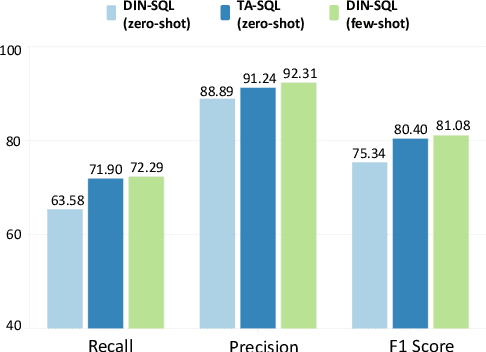Ge Qu
Micro-Act: Mitigate Knowledge Conflict in Question Answering via Actionable Self-Reasoning
Jun 05, 2025Abstract:Retrieval-Augmented Generation (RAG) systems commonly suffer from Knowledge Conflicts, where retrieved external knowledge contradicts the inherent, parametric knowledge of large language models (LLMs). It adversely affects performance on downstream tasks such as question answering (QA). Existing approaches often attempt to mitigate conflicts by directly comparing two knowledge sources in a side-by-side manner, but this can overwhelm LLMs with extraneous or lengthy contexts, ultimately hindering their ability to identify and mitigate inconsistencies. To address this issue, we propose Micro-Act a framework with a hierarchical action space that automatically perceives context complexity and adaptively decomposes each knowledge source into a sequence of fine-grained comparisons. These comparisons are represented as actionable steps, enabling reasoning beyond the superficial context. Through extensive experiments on five benchmark datasets, Micro-Act consistently achieves significant increase in QA accuracy over state-of-the-art baselines across all 5 datasets and 3 conflict types, especially in temporal and semantic types where all baselines fail significantly. More importantly, Micro-Act exhibits robust performance on non-conflict questions simultaneously, highlighting its practical value in real-world RAG applications.
Before Generation, Align it! A Novel and Effective Strategy for Mitigating Hallucinations in Text-to-SQL Generation
May 24, 2024



Abstract:Large Language Models (LLMs) driven by In-Context Learning (ICL) have significantly improved the performance of text-to-SQL. Previous methods generally employ a two-stage reasoning framework, namely 1) schema linking and 2) logical synthesis, making the framework not only effective but also interpretable. Despite these advancements, the inherent bad nature of the generalization of LLMs often results in hallucinations, which limits the full potential of LLMs. In this work, we first identify and categorize the common types of hallucinations at each stage in text-to-SQL. We then introduce a novel strategy, Task Alignment (TA), designed to mitigate hallucinations at each stage. TA encourages LLMs to take advantage of experiences from similar tasks rather than starting the tasks from scratch. This can help LLMs reduce the burden of generalization, thereby mitigating hallucinations effectively. We further propose TA-SQL, a text-to-SQL framework based on this strategy. The experimental results and comprehensive analysis demonstrate the effectiveness and robustness of our framework. Specifically, it enhances the performance of the GPT-4 baseline by 21.23% relatively on BIRD dev and it yields significant improvements across six models and four mainstream, complex text-to-SQL benchmarks.
Tapilot-Crossing: Benchmarking and Evolving LLMs Towards Interactive Data Analysis Agents
Mar 08, 2024



Abstract:Interactive Data Analysis, the collaboration between humans and LLM agents, enables real-time data exploration for informed decision-making. The challenges and costs of collecting realistic interactive logs for data analysis hinder the quantitative evaluation of Large Language Model (LLM) agents in this task. To mitigate this issue, we introduce Tapilot-Crossing, a new benchmark to evaluate LLM agents on interactive data analysis. Tapilot-Crossing contains 1024 interactions, covering 4 practical scenarios: Normal, Action, Private, and Private Action. Notably, Tapilot-Crossing is constructed by an economical multi-agent environment, Decision Company, with few human efforts. We evaluate popular and advanced LLM agents in Tapilot-Crossing, which underscores the challenges of interactive data analysis. Furthermore, we propose Adaptive Interaction Reflection (AIR), a self-generated reflection strategy that guides LLM agents to learn from successful history. Experiments demonstrate that Air can evolve LLMs into effective interactive data analysis agents, achieving a relative performance improvement of up to 44.5%.
Can LLM Already Serve as A Database Interface? A BIg Bench for Large-Scale Database Grounded Text-to-SQLs
May 04, 2023



Abstract:Text-to-SQL parsing, which aims at converting natural language instructions into executable SQLs, has gained increasing attention in recent years. In particular, Codex and ChatGPT have shown impressive results in this task. However, most of the prevalent benchmarks, i.e., Spider, and WikiSQL, focus on database schema with few rows of database contents leaving the gap between academic study and real-world applications. To mitigate this gap, we present Bird, a big benchmark for large-scale database grounded in text-to-SQL tasks, containing 12,751 pairs of text-to-SQL data and 95 databases with a total size of 33.4 GB, spanning 37 professional domains. Our emphasis on database values highlights the new challenges of dirty database contents, external knowledge between NL questions and database contents, and SQL efficiency, particularly in the context of massive databases. To solve these problems, text-to-SQL models must feature database value comprehension in addition to semantic parsing. The experimental results demonstrate the significance of database values in generating accurate text-to-SQLs for big databases. Furthermore, even the most effective text-to-SQL models, i.e. ChatGPT, only achieves 40.08% in execution accuracy, which is still far from the human result of 92.96%, proving that challenges still stand. Besides, we also provide an efficiency analysis to offer insights into generating text-to-efficient-SQLs that are beneficial to industries. We believe that BIRD will contribute to advancing real-world applications of text-to-SQL research. The leaderboard and source code are available: https://bird-bench.github.io/.
 Add to Chrome
Add to Chrome Add to Firefox
Add to Firefox Add to Edge
Add to Edge